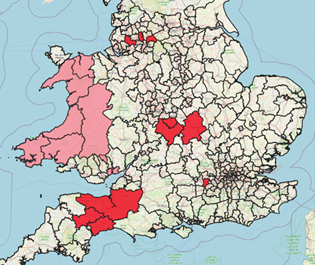The LetsRecycle.com Collections conference (last week), cast light on some of the challenging decisions and situations facing local government (in England) in the next three years.
So whilst the Simpler Recycling policy is intended to provide greater flexibility to Council services (and it does achieve this), here are three key areas where a judgement call is required in the near term.
Non Household Municipal waste
The setting of budgets and plans for March 2025 is not far away. The current stance is that Simpler Recycling comes into effect for household collections in March 2026, however for Non Household Municipal (NHM, including businesses, schools, hospitals etc.) it comes into effect a year earlier. This has a number of implications, not least in terms of provision of infrastructure to deal with the additional recycling. Those Councils that provide collections services to NHM, (i.e most Waste Collections Authorities to a degree) will need to both be educating their customers and preparing the necessary logistical arrangements (both in terms of collection and tipping / management of the waste). There is a particular issue around food waste. Whilst there is a derogation for micro businesses (of 2 years) other NHM will need to comply and where the WCA / their contractor doesn’t already collect food waste this effectively means plans need to be underway imminently to assess the requirements and make arrangements. Waste Disposal Authorities need to consider the tipping / transfer and treatment implications.
What does the 65% target look like for household waste?
Many Councils are looking at their waste strategies now for longer terms planning, in the light of some assurance from Government around policy direction. We were reminded in the Collections Conference that the Government assumed that NHM would play a greater part than household waste in achieving the 65% national recycling target. Household waste was predicted to (Government Impact Assessments) contribute c. 56% recycling, whereas NHM in the 70’s% by 2035. Both are stretching targets for some areas - we are now seeing Strategies in areas with lower current recycling performance and challenging housing types, like East London, setting LACW recycling targets of 35% by 2030 and aspiring to 50% beyond this. This might seem unambitious in other contexts, but where there are very high proportions of flats (and increasing numbers going forward) this can still be very challenging to implement and deliver. This context is important, the street level properties in areas like East London may be recycling in the 40’s percent already but the flats estates may be close to 15 - 20%. It was also reported at the conference (by CIWM) that the Wales performance (currently the third in the world) would be around the mid 50’s percent if measured under the England reporting system, and we are well aware how much the Government in Wales has focused on and resourced the service in order to achieve this level.
The economics of Collection
Where Councils currently collect 3 weekly or 4 weekly residual waste (see map), the proposed minimum fortnightly collection of residual waste (for England), will have implications not only for collection costs, but also on the proportion of recyclables / organics extracted, and therefore treatment and disposal costs. In both cases impacting negatively in cost terms for the Councils / WDAs involved.

Map of Councils with 3 or 4 weekly collections (pink in Wales, red in England)
The ‘Efficient and Effective’ payment from EPR will be based on a formula garnered from research with c. 60 Councils, and there will be a minimum payment of 80% of this value to the respective WCAs. If delivering Efficient and Effective services according to the formula, this would be 100%. So the difference between the two will reflect the viability of a service change to the Council, which has particular relevance to the decisions for those Councils with less frequent residual waste collections. The potential for non payment of new burdens funding to Councils that do not deliver to the Governments minimum service model (subject to consultation on aspects like minimum fortnightly collections), will be another factor in the service economics to consider, notably around food waste funding.
So, there is a lot swirling around in the casserole of decision making at present. This is probably why we are being asked to undertake a range of options assessments at the present time (see our latest Newsletter out later this week).
Frith Resource Management deliver technical collection, recycling, treatment and disposal modelling, consultation and strategies for public and private sector clients. For more details see www.frithrm.com email rosie@frithrm.com or call 01746 552423













